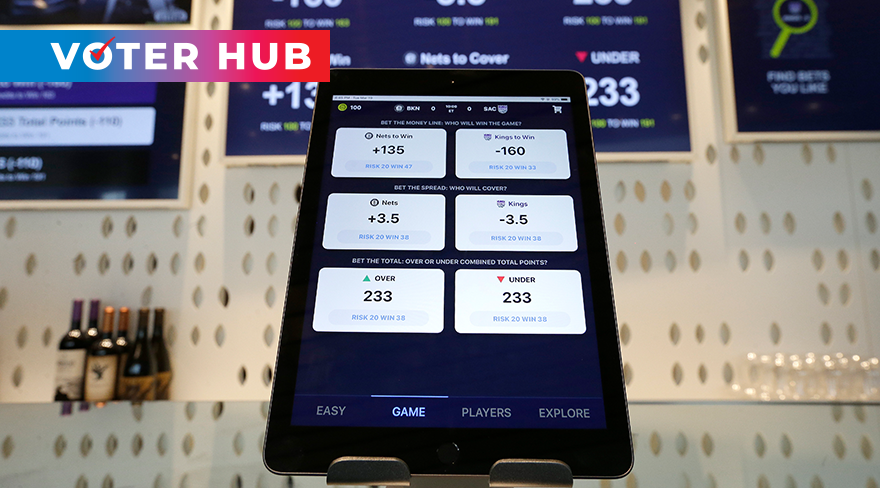Live Results
Live Results
Californians rejected sports gambling by wide margins after the most expensive ballot question races in U.S. history. Both Propositions 26 and 27 would have amended California’s constitution to allow for sports wagering.
Prop 26 would have allowed for in-person sports wagering at tribal casinos and four California racetracks, including at the Del Mar Thoroughbred Club. It also would have introduced dice games like roulette at casinos. Prop 26 was backed by more than 50 California tribes, including San Diego County’s Barona Band of Mission Indians and the Sycuan Band of the Kumeyaay Nation.
"People betting will have to show their identification," said Kathy Fairbanks, spokesperson for the Yes on 26, No on 27 campaign. "Someone will check their IDs and make sure that they are adults, and following the law."
Under Prop. 26, tribes would have needed to create new compacts with the state. They would have been required to at least pay for regulatory costs, but would not have had to pay into the same fund that race tracks would. Tracks would have been required to pay 10% of daily bets, minus payouts. A majority of those profits would have gone into the state's general fund, with the rest split between gambling programs and compliance. California's Legislative Analyst's Office said in its analysis of Prop. 26's potential revenues, "The size of this increase is uncertain, but could reach tens of millions of dollars annually."
Proposition 27 would have legalized online or mobile sports wagering for both tribes and online gaming companies. Those businesses would have had to partner with a tribe to get a state license. It was backed by betting companies like Fanduel and Draftkings, along with a few smaller tribes in Northern California.
"Our coalition knew that passing Prop 27 would be an uphill climb, and we remain committed to California," said a spokesperson for the Proposition 27 campaign Tuesday night. "Dozens of states and countless local governments are benefitting from the significant tax revenue that online sports betting provides, and as California faces tax revenue declines and uncertain economic headwinds, online sports betting can provide substantial solutions to fill future budget gaps."
Under Prop. 27, 10% of betting profits would have gone into a fund to address homelessness with a smaller portion of that split among tribes without casinos. California's Legislative Analyst's Office said in its analysis of Prop. 27's potential revenues, "The increase could be in the hundreds of millions of dollars annually, but likely would not be more than $500 million annually."
"Twenty five other states have legalized online sports betting," said Nathan Click, spokesperson for the Yes on 27 campaign. "They’re proving you can do so safely and responsibly and create real revenue for states."
Collectively, nearly $600 million was raised in opposition and support of the measures, yet recent polls revealed they each were not popular with voters. Both required a simple majority to pass.






